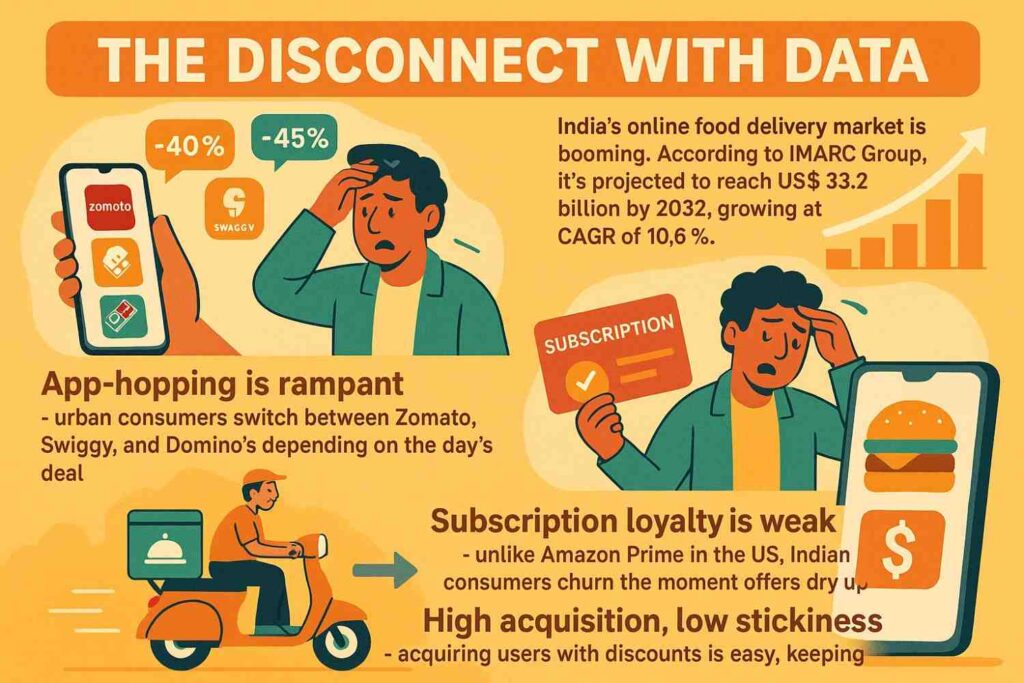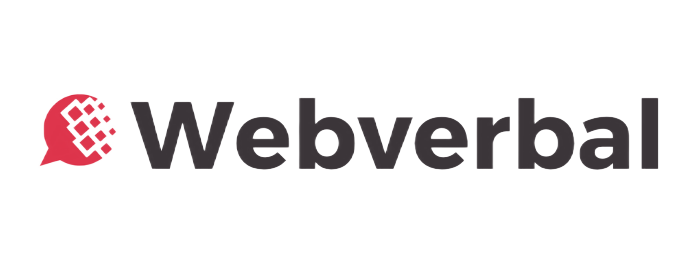₹149 per month. Free deliveries. Blinkit tie-ins. Dining perks. At first glance, Zomato’s Gold relaunch looks like another discount push. But the real play isn’t about free food. It’s about something far more critical: retention.
The Disconnect Data

India’s online food delivery market is booming. According to IMARC Group, it’s projected to reach US$ 33.2 billion by 2032, growing at a CAGR of 10.6%. But growth hides fragility:
- App-hopping is rampant — urban consumers switch between Zomato, Swiggy, and Domino’s depending on the day’s deal.
- Subscription loyalty is weak — unlike Amazon Prime in the US, Indian consumers churn the moment offers dry up.
- High acquisition, low stickiness — acquiring users with discounts is easy; keeping them long-term is the real game.
The truth: discounts buy attention, but retention builds moats.
The Behavioral Reality
Zomato Gold 2.0 is less about freebies and more about ecosystem lock-in. By bundling food delivery, groceries (Blinkit), and dining, Zomato wants users to stay inside its world.
But the challenge is deep-rooted. Indian consumers treat apps like switchable utilities, not trusted partners. That’s why retention in Bharat looks very different from Western subscription models. Amazon Prime works in the US because consumers trust long-term value. In India, loyalty is transactional.
This is where many founders misread signals. They celebrate vanity metrics — downloads, orders, GMV — without seeing the behavioral blind spot: loyalty built on discounts is a treadmill that never stops.
As our Why Most Indian Startups Fail: A Case Study-Led Dive into Behavioral Blind Spots highlights, ignoring retention economics often leads to collapse.
What Needs to Change
Zomato’s move is a signal: survival in India’s food delivery wars will depend not on deeper discounts but on repeat use, ecosystem benefits, and consumer trust.
For founders, the lesson is sharp:
- Don’t mistake scale for loyalty.
- Build retention strategies early.
- Treat subscription perks as glue, not giveaways.
Key Takeaways
- India’s food delivery market is set to hit US$ 33.2B by 2032.
- App-hopping kills loyalty; retention is the new moat.
- Zomato Gold 2.0 is less about discounts, more about stickiness.
- Founders must master retention economics, not vanity growth.
Discounts may win battles, but in Bharat’s digital economy, only retention wins wars.




